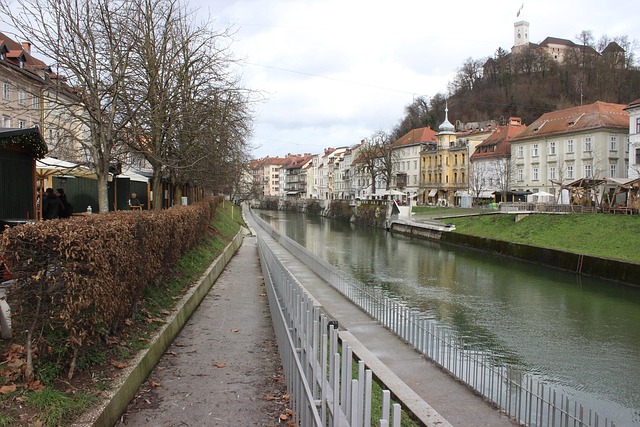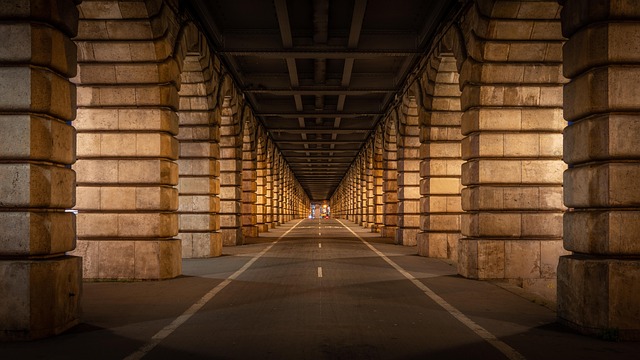The Karachi Development Authority (KDA)'s Scheme 1 revolutionizes waste management in vibrant Karachi by encouraging recycling through partnerships and efficient segregation, reducing landfill waste, creating jobs, and fostering environmental sustainability. Despite challenges posed by the city's size and diversity, this initiative serves as a model for other urban areas, aiming for a greener future in karachi.
Karachi, Pakistan’s vibrant metropolis, has embarked on a sustainable journey with Scheme 1 of the KDA (Karachi Development Authority) recycling initiative. This article delves into the intricacies of how this scheme is transforming the city’s waste management landscape. We explore the operational mechanisms of recycling centers under KDA Scheme 1, its environmental benefits, and challenges faced in implementing this innovative program. Discover how Karachi is setting an example for efficient waste recycling.
- Understanding Scheme 1: A Glimpse into Karachi's Recycling Initiative
- How Recycling Centers Operate under KDA Scheme 1
- Benefits and Challenges: Evaluating the Impact of Scheme 1 in Karachi
Understanding Scheme 1: A Glimpse into Karachi's Recycling Initiative

Scheme 1, part of KDA (Karachi Development Authority) initiative, represents Karachi’s commitment to sustainable waste management through recycling. This pioneering program aims to transform the city’s approach to waste disposal by encouraging and facilitating the collection and processing of recyclable materials. By implementing this scheme, KDA seeks to reduce the environmental impact of waste accumulation and foster a circular economy in which resources are conserved and reused.
The initiative focuses on collecting common recyclables such as plastic, paper, glass, and metal from various sources across Karachi. This involves partnerships with local businesses, residential communities, and government bodies to ensure efficient waste segregation and collection. The processed materials are then sold to recycling plants, generating revenue that can be reinvested in expanding the city’s green infrastructure and promoting further environmental initiatives.
How Recycling Centers Operate under KDA Scheme 1

In Karachi, recycling centers operating under Scheme 1 of the KDA (Karachi Development Authority) play a pivotal role in managing the city’s waste and promoting sustainable practices. These facilities are designed to receive, sort, process, and recycle various types of materials like plastic, paper, glass, and metal. The KDA Scheme 1 provides a structured framework for these centers, ensuring efficient waste segregation and recycling operations.
Under this scheme, recycling centers receive mixed waste from collection points, such as door-to-door collections or municipal dump sites. Skilled labor and specialized machinery then separate the recyclable materials, cleaning and processing them further. This meticulous process transforms waste into reusable products, contributing to the city’s environmental sustainability. Karachi’s recycling centers not only reduce landfill waste but also create job opportunities and foster a circular economy, making significant strides towards a greener future.
Benefits and Challenges: Evaluating the Impact of Scheme 1 in Karachi

Scheme 1, a pioneering initiative by the Karachi Development Authority (KDA), has brought significant changes to the city’s waste management landscape. The primary benefit lies in its ability to encourage and facilitate recycling practices, significantly reducing the volume of waste ending up in landfills. This not only minimizes environmental pollution but also creates job opportunities for local communities involved in sorting and processing recyclable materials. Karachi, known for its bustling streets and diverse population, has seen a positive impact on its overall sustainability.
However, challenges remain. Effective implementation requires robust infrastructure and public participation, which can be hindered by the city’s vast size and varying socio-economic conditions. Moreover, ensuring the safe handling of hazardous waste components within the recycling process is crucial but often demanding. Despite these hurdles, Scheme 1 serves as a step towards a greener Karachi, offering valuable insights into sustainable waste management practices for other urban centers.
Karachi’s KDA Scheme 1 has made significant strides in promoting sustainable practices by establishing recycling centers. This initiative not only reduces waste but also creates employment opportunities and fosters a circular economy. However, challenges like inadequate infrastructure and public awareness remain. As we look to the future, further collaboration and education are crucial to ensuring Scheme 1’s long-term success and making Karachi a cleaner, greener city.
